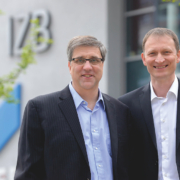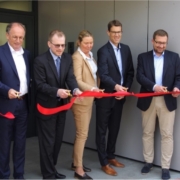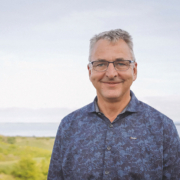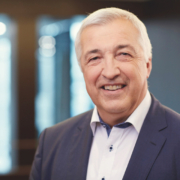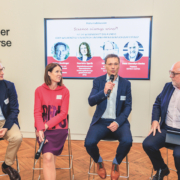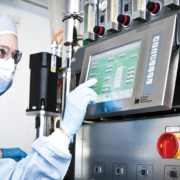At the IZB, we are right in the middle of it allas one of the leading cell culture specialists in the heart of Germany’s biotech hotspot and as a medium manufacturer in life science research.
ADVERTISEMENT
“It’s obvious that the overall healthcare market will continue to grow. And photonics technology – which delivers a number of unique capabilities, like non-invasive or non-contact probing at high spatial resolution – is poised to play an ever-increasing role in this field.”
Richter-Helm BioLogics has reached a further and important construction milestone during the expansion of its production site in Bovenau. We officially and ceremoniously inaugurated the new office building on May 31, 2023 together with the mayor of Bovenau, Mr. Ambrock, two years after the groundbreaking ceremony.
For a long time, scientists have been searching for enzymes that can degrade commodity plastics such as Polyurethanes or poly-vinyl chloride (PVC). German-US company Covestro AG and researchers at University of Greifswald now say that they have found new enzymes that could do the job.
German Bayer AG opens first Co.Lab life science incubator in Cambridge/Boston. This comprises state-of-the-art laboratories and collaborative workspaces specifically designed to support entrepreneurs focused on developing cell and gene therapies.
The BioRN Life Science cluster Rhine-Neckar has set the right course to further accelerate the start-up dynamic. Several lighthouse projects have been established recently, fostering innovation and providing the ideal breeding ground for biotech projects. Joint forces now develop strategies to attract investors and increase the visibility of the start-up community. The Life Science Investors´ Day Heidelberg has established itself as a top-class platform.
2. BIOTECH CIRCLE – Almost twice as many visitors as at last year’s premiere were welcomed by Biotech Austria’s Chairman Peter Llewellyn-Davies in the Vienna Stock Exchange in April. Framed by a Flying Breakfast, the topic was the provocative question Science always wins?!
The region regulated by the European Medicines Agency (EMA) has been the most proactive globally in the early adoption of biosimilars. By February 2023, it had approved around 75 products containing them. The distribution of such compounds within Europe, however, has been uneven, with some countries offering more market opportunities than others. Beyond Europe, few producers have a strategy for the Middle East and/or Africa, and India and South Korea could soon jump in to fill the gap.
A UK Biobank analysis of data from 200,000 people over more than ten years,
carried out by British researchers, have linked consumption of ultra-processed foods to an
increased risk of developing and dying from cancer. However, according to the authors from
Imperial College London it doesn’t provide a causal relationship.
The switch from lab-scale to industrial-scale AAV production requires deep hands-on expertise in various technological solutions, their limitations, and their suitability for GMP large-scale manufacturing. Direct application of lab-scale process leads to expensive AAV-based products and unnecessarily laborious industrial processes. The complexity and growing demands for controllable critical quality attributes (CQAs), create a challenging blend.


